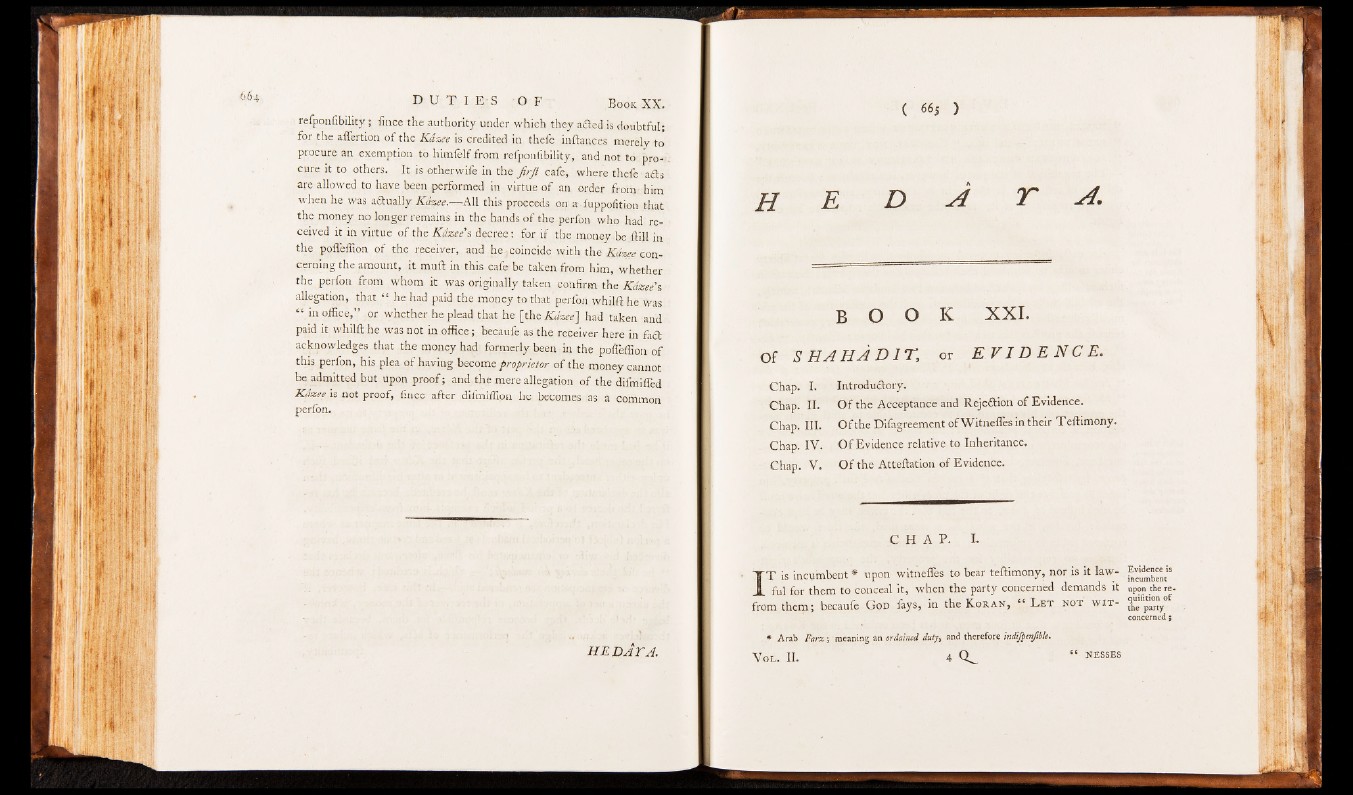
refponfibility; fince the authority under which they adted is doubtful;
for . the aflertion of the Kazee is credited in thefe inftances merely to
procure an exemption to himfelf from refponfibility, and not to pro-j
cure it to others. It is otherwife in the JirJt cafe* where thefe afts
are allowed to have been performed in virtue of an order from- him
when he was actually Kazee.— All this proceeds on a'fuppofition that
the money no longer remains in the hands of the perfon who had' received
it in virtue of the Kazee's decree: for if the money be ftill in
the pofieffion of the receiver, and he^coincide with the. Kazee concerning
the amount, it muft in this cafe- be taken from him, whether
the perfon from whom it was originally taken confirm the Kazee's,
allegation, that “ he had paid, the money to that perfon whilfi: he was
“ in office,” or whether he plead that he [the Kazee] had taken and
paid it whilfi: he was not in office; becaufe as the receiver here in fadt
acknowledges that the money had formerly been in the pofleffion of
this perfon, his plea of having become proprietor of the money cannot
be admitted but upon proof; and the mere allegation of the difmifled
Kazee is not proof, fince after dilmiffipn he becomes as a common
perfon.
H E B A T A .
h e d a t a.
b o o k x x i .
Of S H A H A D I T , or E V I D E N C E .
Chap. I. Introductory.
Chap. II. O f the Acceptance and Rejection of Evidence.
Chap. III. O f the Difagreement of Witnefles in their T effimony.
Chap. IV. O f Evidence relative to Inheritance.
Chap. V . O f the Atteftation of Evidence.
C H A P . I.
IT is incumbent * upon witnefles to bear teftimony, nor is it lawful
for them to conceal it, when the party concerned demands it
from them; becaufe G od fays, in the K oran, “ L et not w it -
* Arab Far7. ; meaning an ordained duty, and therefore indifpinjiblt.
Evidence is
iheumbent
upon the re-
quifition o f
the party
con ce rned ;